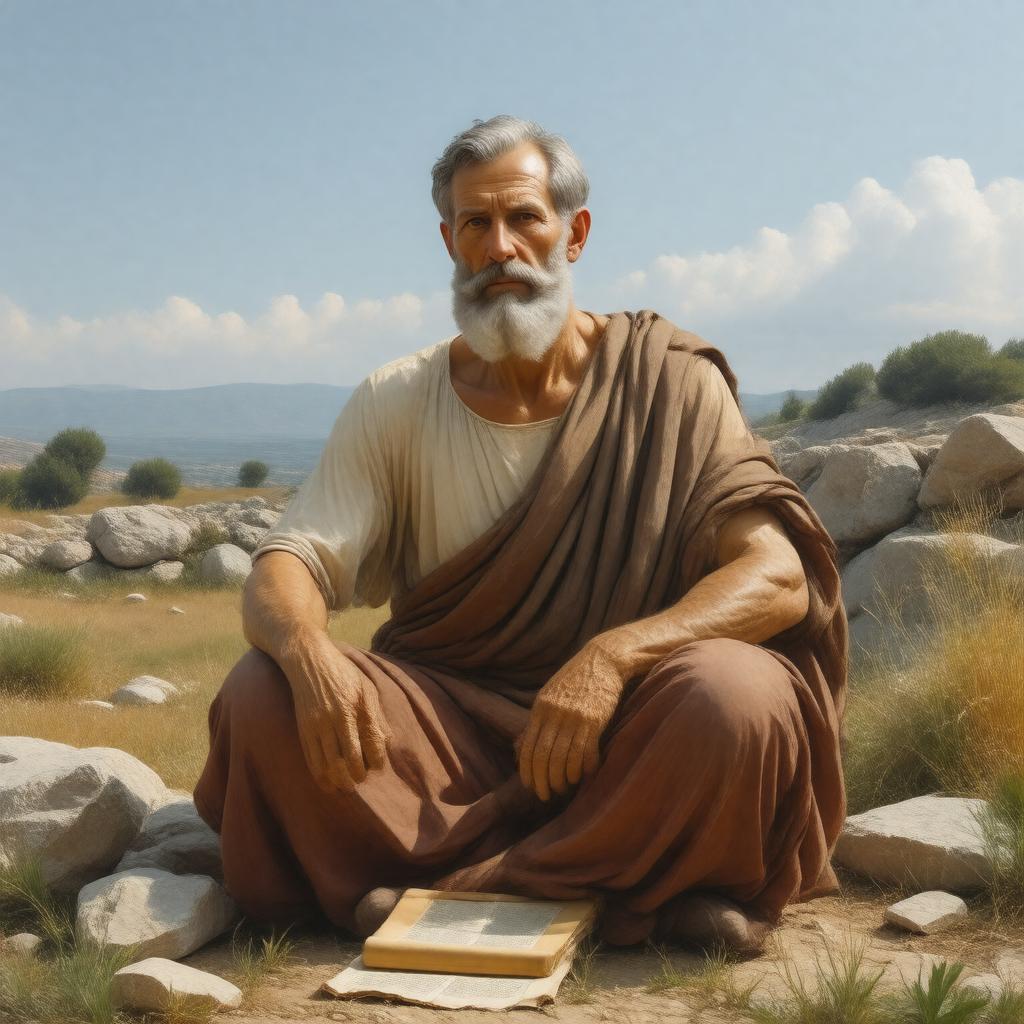Prompt
Generate an image of Epictetus, a male Roman philosopher of Greek ethnicity, sitting in a serene outdoor setting, possibly in Nicopolis, with a gentle expression, dressed in simple Stoic attire, surrounded by elements that reflect his philosophical school, such as a scroll with his Discourses or Enchiridion, under a clear sky that symbolizes clarity of thought, in a realistic style that captures the essence of Hellenistic philosophy and the era of Western philosophy he contributed to, highlighting his status as a freed slave who became a prominent figure in Stoicism.

